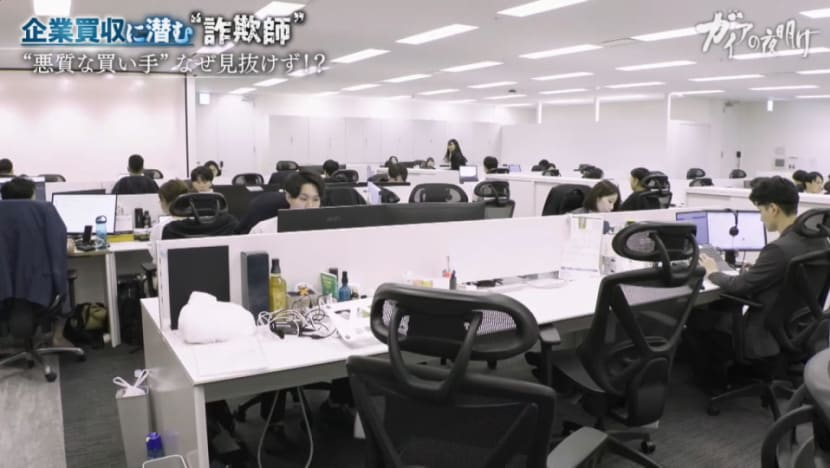Gaia Series 70: "Scammers" lurking in corporate acquisitions
This Japan Hour episode exposes the shocking story of Senshu Science’s M&A ordeal, revealing how scams exploit business takeovers and the regulations now reshaping Japan's corporate landscape.


This audio is generated by an AI tool.
This week’s episode is a gripping tale of trust betrayed and lessons learned in Japan’s evolving M&A industry.
Under the glow of Suginami Ward’s bustling skyline, the story of Senshu Science unfolds as a sobering cautionary tale. Once a thriving manufacturer of analytical equipment, the company boasted clients like Nobel laureate Satoshi Omura. By 2015, Senshu Science had reached its zenith, supporting ground-breaking research with its advanced centrifuge systems. “Our machines were precise and reliable,” reflects Chiaki Yamaguchi, the 76-year-old founder, recalling the pride he felt in his 40-year venture. At its peak, Senshu Science employed 30 staff and generated an impressive 800 million yen (S$7.15 million) annually.
Then COVID-19 struck. By 2020, a 14 million yen deficit paired with pandemic woes pushed the company into debt exceeding 300 million yen. To make matters worse, its employees were poached by competitors and Yamaguchi’s wife and co-manager, Toyo, was diagnosed with dementia. “I just wanted to care for my wife,” he confides, his voice thick with emotion. This personal turmoil set the stage for a fateful decision.
A direct message from Pear Capital, an M&A brokerage firm, promised salvation. Companies such as Pear Capital help match companies looking to sell their business to those wanting to buy. They paired Senshu Science with Lucian Holdings, a company seemingly poised for growth. Yamaguchi recalls his initial relief: “Lucian had a Tokyo office and a solid track record. It felt safe.” Which was why he left it up to them to broker the deal. In June 2022, less than two months after the introduction, Yamaguchi signed a deal to transfer his shares for 5 million yen. The agreement also stipulated Lucian would assume his 300 million yen debt.
However, red flags soon emerged. Within weeks of acquisition, Lucian Holdings drained Senshu’s 68 million yen in working capital. By January 2024, the company declared bankruptcy. “They preyed on us, took the valuable assets, and fled.” Yamaguchi asserts bitterly, describing how Lucian’s executives, Hirota and Katayama, vanished, leaving Senshu’s legacy in ruins.
The episode sheds light on Lucian’s sinister modus operandi. Over two years, the company acquired nearly 40 businesses, appointing their own oblivious staff as the head of the companies, then systematically stripping assets and transferring funds to private accounts. An insider, one of these appointees, identified only as F, recounts the chaos: “I was left with 300 million yen in debt, holding demand letters I couldn’t answer.” Surveillance cameras lined Lucian’s disordered office, a haunting reminder of a façade meticulously crafted to exploit trust.
Adding to the outrage, the episode unveils Pear Capital’s role. Despite brokering the deal, the firm absolved itself of responsibility once the contract was signed. CEO Satoru Tanaka expresses regret: “It wasn’t our best mediation. It’s a shame we introduced this buyer.” Yamaguchi remains unconvinced. “They’re as culpable as Lucian,” he insists, lamenting the brokerage firm’s failure to vet buyers rigorously.
The documentary also explores Japan’s broader M&A landscape. In a super-aged society, business takeovers are vital for economic continuity. Yet, lax regulations made the sector ripe for abuse. Until recently, M&A brokers operated without licensing, leaving sellers vulnerable to predatory buyers. A legal expert consulted during the episode highlights systemic gaps: “Intermediaries could claim ignorance of contractual terms, escaping accountability.”
The fallout from Senshu’s collapse has spurred reforms. The Ministry of Economy, Trade, and Industry issued new M&A guidelines in 2023, mandating buyer credit checks and holding intermediaries accountable. From November, the M&A Broker Association plans to publicise malicious buyers as well as introduce a rating system for intermediary companies, aiming to rebuild trust in the industry.
A poignant moment in the episode captures Yamaguchi visiting a lawyer’s office, seeking justice. Holding Lucian’s letter of intent, he points to a clause promising debt cancellation. “It’s clear, yet they walked away,” he says. His resolve mirrors the sentiment shared by countless small business owners grappling with similar betrayals.
The episode concludes with F’s solemn reflection on the human toll of these schemes: “For every company they ruin, there are families shattered. It’s not just numbers; it’s lives.” Meanwhile, Hirota and Katayama remain fugitives, their trail marked by a 500 million yen fraud case filed with Tokyo police.
Through its meticulous storytelling, the epsiode paints a vivid picture of corporate greed and its cascading consequences. Yamaguchi’s journey is a reminder that vigilance and robust systems are paramount in safeguarding businesses. As Japan tightens its regulations, the hope is for an M&A industry that nurtures growth without exploiting trust.












